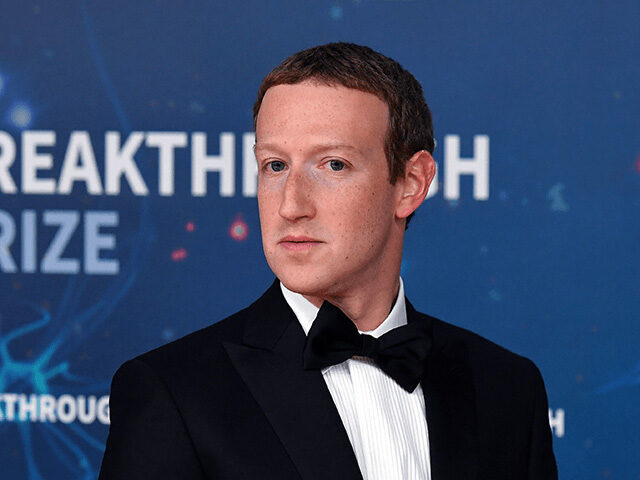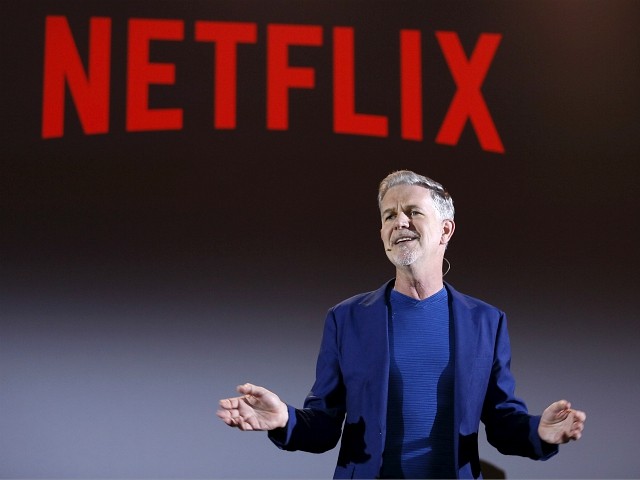Lawsuit: Facebook Gave Netflix Access to Private User Messages, Scuttled Video Service for Sweetheart Ads Deal

Newly unsealed court filings from the antitrust lawsuit against Mark Zuckerberg’s Meta reveal that Facebook’s short-lived streaming service, “Watch,” was allegedly shut down to protect an advertising deals with Netflix. The sweetheart deal between the two Silicon Valley giants also including giving the streaming platform access to Facebook analytics and even access to private user messages.
Gizmodo reports that Facebook’s short-lived streaming service, “Watch,” showed great potential when it launched in 2017, signing deals to produce original TV shows featuring movie stars like Bill Murray and attempting to license popular content such as the ’90s TV show Dawson’s Creek. However, court filings recently unsealed reveal that the service was allegedly kneecapped just two years later to protect Facebook’s advertising deals with Netflix.
Reed Hastings’ panel during Netflix ‘See What’s Next’ event (Photo by Ernesto S. Ruscio/Getty Images for Netflix)
Mark Zuckerberg surrounded by guards ( Chip Somodevilla /Getty)
The plaintiffs in the antitrust lawsuit against Meta argue that Netflix and Facebook enjoyed a special relationship for nearly a decade, facilitated by Netflix’s then-CEO Reed Hastings, who sat on Facebook’s board from 2011 to 2019. During this period, Netflix was allegedly granted privileged access to Facebook users’ private message inboxes and other analytics tools in exchange for hundred-million-dollar advertising deals, giving Facebook greater dominance in its crucial ad division.
When questioned about potential conflicts between Facebook Watch and Netflix at the 2017 Recode conference, Hastings downplayed the issue, stating, “We’re not bidding on the same shows.” However, he later emailed Mark Zuckerberg, writing, “Let me know if you think there was a better way to handle. In hindsight, I wish I added a materiality qualifier like ‘not generally bidding on the same content.'”
In May 2018, just two years after Watch’s launch, Zuckerberg personally emailed Fidji Simo, the head of Facebook Watch, informing her that their budget was being slashed by $750 million. This sudden pivot meant Facebook was dismantling the streaming business it had spent the previous two years growing. Simultaneously, Netflix increased its ad spend on Facebook to roughly $150 million a year and allegedly entered into agreements for increased data analytics.
The plaintiffs allege that Zuckerberg shuttered the promising Watch platform for the sake of the greater advertising business, as Netflix was a large advertiser on Facebook. The class-action antitrust case, filed on behalf of consumers and advertisers, argues that Meta is a monopoly in the social media market.

